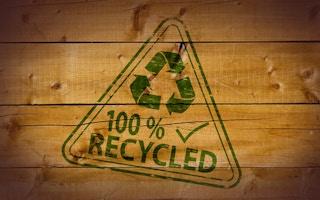Private sector sourcing commitments are driving major market growth for sustainable commodities, according to the State of Sustainability Initiatives (SSI) Review 2014 published by an alliance of international organisations.
The SSI Review 2014 provides a bird’s eye view of market and performance trends of the 16 most prevalent standards initiatives, such as the Forest Stewardship Council, Organic, and Rainforest Alliance — across ten leading commodity sectors. The Review reveals double and triple digit growth across the majority of initiatives surveyed. Certified goods with an estimated trade value of US$36.1 billion in 2012, and a much higher market value, were studied.
Once thought of as instruments primarily tailored for niche markets, voluntary sustainability standards such as Fairtrade, Rainforest Alliance and Organic are gaining traction in mainstream markets. The trend towards mainstreaming of sustainability standards is strongest among newer sector-specific initiatives that explicitly target mainstream markets.
The Review documents a persistent trend in sustainable sourcing commitments by manufacturers including Dole, Chiquita, Coca Cola Company, Tetley, Twinings, Unilever, Hershey’s, Home Depot, Lowes, Starbucks, Nestlé, Ferrero Group, Mars, Ikea, Adidas and others.
“
While a number of voluntary standards are making concerted efforts to ensure that smaller-scale producers have access to sustainable markets, most production for sustainable markets has been dominated by more advanced producing countries
The growing number of companies that have made commitments to source sustainably illustrates the critical role that the private sector plays in overall market growth of products certified under these initiatives.
The average annual growth rate of certified production across all commodity sectors (excluding biofuels) in 2012 was a stunning 41per cent, outpacing growth of 2 per cent in the corresponding conventional commodity markets. Growth in certified production was strongest in the palm oil sector which experienced 90 per cent growth in 2012. Other leading sectors were sugar (74 per cent), cocoa (69 per cent) and cotton (55 per cent).
Research found that compliant production attained significant market penetration in several major commodity markets. Certified coffee, which led in terms of market penetration, reached a 38 per cent market share of global production in 2012 (up from 9 per cent in 2008). Other certified commodities with significant market share for sustainable production in 2012 include: cocoa (22 per cent); palm oil (15 per cent) and tea (12 per cent).
Although the Review documents strong growth across both production and sales of sustainable commodities, it also reveals a persistent oversupply of standard-compliant products.
Jason Potts, co-author and IISD associate, notes that, “Typically between 1/3 and 1/2 of total compliant production is actually sold as compliant, which poses a dichotomy of impacts on the supply chain. The visible oversupply of standard-compliant goods,” continues Potts, “means that companies benefit from a wide selection of options when sourcing sustainably. This may however also indicate a downward pressure on the prices of sustainable products due to oversupply which could create a detrimental impact on smallholder producers.”
The Review, which also examines the conformity assessment systems, governance structures and criteria coverage across competing initiatives, reveals that, overall, voluntary sustainability standards have been successful in establishing:
- more inclusive governance across global supply chains
- third party monitoring as the minimum norm for conformity assessment
- compliance with core ILO labor standards as minimum requirements for market entry
Perhaps most importantly, however, the increasingly pervasive uptake of voluntary sustainability standards points towards the growing potential for such standards to have positive impacts on the poorest rural producers. While a number of voluntary standards are making concerted efforts to ensure that smaller-scale producers have access to sustainable markets, most production for sustainable markets has been dominated by more advanced producing countries.
According to Bill Vorley of IIED, one of the leaders behind the project, “The trend towards an increased concentration of sustainable production in more developed regions is disconcerting especially when considering that poverty represents one of the main sustainability issues of commodity production more generally.”
The SSI Review 2014 also reveals a long-term trend of declining depth of sustainability criteria coverage among voluntary standards over the past decade. This trend might be enabling more producers to enter sustainable supply chains, but also highlights the growing importance of answering questions related to the field-level impacts created by voluntary sustainability standards.
Overall, the SSI Review concludes that the opportunities for voluntary standards to enable positive transformational change across major mainstream markets are now well established and continue to grow, but that taking full advantage of them will require a better understanding of field-level impacts as well as a host of strategic policy measures to support technical assistance and cost-internalization at the market level.
The SSI Review 2014 is a collaborative effort by the International Institute for Sustainable Development (IISD), the International Institute for Environment and Development (IIED), the Finance Alliance for Sustainable Trade (FAST), Environment and Trade in a World of Interdependence (ENTWINED) and the Sustainable Trade Initiative (IDH).










